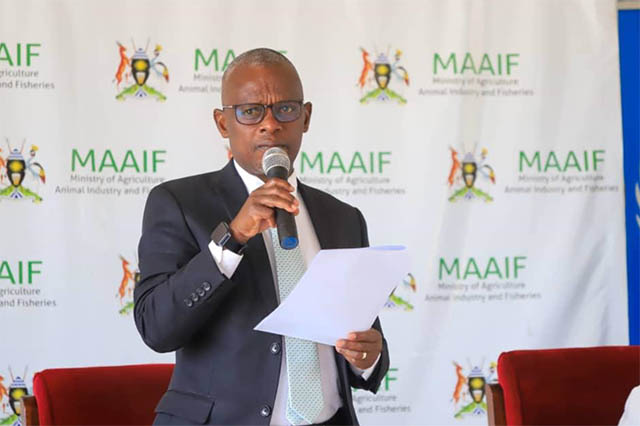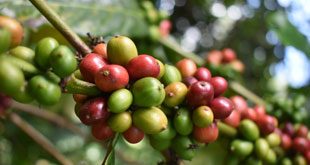
Moroto, Uganda | THE INDEPENDENT | 16,000 households are set to benefit from a new food security program in Karamoja.
The “Improving Food Security and Resilience of Food Production Systems” is an initiative that is expected to indirectly impact up to 80,000 individuals across all nine districts of the Karamoja sub-region—including Abim, Amudat, Kaabong, Karenga, Kotido, Moroto, Nabilatuk, and Napak. The program will target selected parishes in at least one sub-county in each district.
This initiative aims to enhance resilience and promote gender-responsive food production and livelihood systems for food and nutrition security in the sub-region. Valued at UGX 20 billion (EUR 5 million), it is fully funded by the European Union (EU) and implemented by the Food and Agriculture Organization (FAO) in collaboration with the World Food Program (WFP), the Office of the Prime Minister, the Ministry of Agriculture, other MDAs and private sector players.
David Kasula, the Permanent Secretary in the Ministry of Agriculture represented by Ministry Undersecretary Ssegawa Ronald, highlighted that the plan is to develop food systems that are fair, applicable to everyone, and environmentally friendly. It also aims to maintain stable food supplies and enable the government to respond swiftly to any food crises. “
This aligns with the Ministry of Agriculture’s mission of transforming subsistence farming into commercial agriculture,” he noted.
For successful implementation, Ssegawa cautioned that project implementers to learn from past initiatives, which often had little or no impact on communities. He urged implementers to align their strategies with beneficiaries’ needs and make every coin count.
Karolina Hedström, head of EU cooperation in Uganda, emphasized that the EU-Uganda partnership prioritizes green and climate transitions, sustainable and inclusive jobs, democratic governance, and social inclusion. He said that the program aligns with those values, particularly in addressing climate change and promoting sustainable development.
Hedström noted that the program’s focus on resilience to food shocks is timely, given the continuing effects of climate change. It builds on the successes of previous projects, expanding interventions in this area.
Charles Owach, FAO Assistant Representative for Programs, expressed gratitude to the EU for funding the program. He explained that the initiative will enhance sustainable food production and productivity. “This will be achieved through strengthening agri-food value chains, empowering smallholder farmers, women, and youth to build resilient agribusinesses, and reinforcing early warning systems and anticipatory actions,” he said.
Karamoja, a region frequently impacted by food crises due to climate change, low agricultural productivity, land degradation, and gender disparities, is expected to benefit significantly from this program. The project builds on the Pro-Act initiative for strengthening stock-responsive systems in Karamoja, set to conclude later this year.
Paul Lokol, District Chairperson of Nabilatuk, expressed optimism about the program’s potential to complement other food security initiatives. “It is our hope as the people of Karamoja that we build on existing food systems. While we welcome new technology, it is essential that we leverage existing systems,” he said.
Lokol added that as a community, they believe they have built considerable knowledge and capacity in traditional methods, given their long-standing experience with these challenges. This existing knowledge, he noted, needs enhancement rather than replacement with entirely new technologies.
He affirmed that they are entering the project as partners, not as passive recipients, bringing their proven resilience in such a challenging environment to contribute ideas for the world.
****
URN
 The Independent Uganda: You get the Truth we Pay the Price
The Independent Uganda: You get the Truth we Pay the Price


